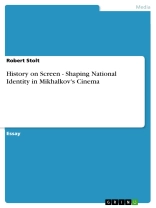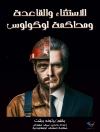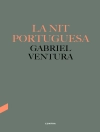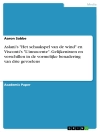Essay from the year 2010 in the subject Film Science, grade: 1, 4, University of St Andrews, language: English, abstract: With the dissolution of the Soviet state and the breakdown of Soviet ideologies the question about Russian national identity became a central issue in post-Soviet Russian culture (Horton 2001: 218). By promoting specific values of traditional Soviet ideals, Mikhalkov, in Burnt by the Sun [Mikhalkov, 1994], revives a national ideology and aims to re-establish the Russian national identity in post-Soviet Russia. The film recalls the idea of a distinctive Russian fate that has, admittedly, time and again resulted in political catastrophes, but nevertheless has become the basis of Russian culture having unique status and thus is crucial in forming a contemporary Russian cultural identity (Anemone 2001: 143). By reminding of past traditions and values, the film is devoted to explore what being Russian means (Larson 2003:492).
The major attention in this essay lies in exploring the utopian world created by Mikhalkov to establish an illusionistic past with the focus on the national hero. Modern nation-states often feel the need to create a myth of national identity. By doing so it is
crucial to have a heroic figure at hand that represents the strengths and potencies of the nation and that people can aspire to and look up to. Such an ideal, however, cannot exist
in real life which is why Mikhalkov creates an illusionistic world within reality to allow his heroic figure to flourish. By recalling a heroic Russian past, specifically a Soviet one, Mikhalkov demonstrates his affection to Socialist ideas and his endeavour to bring about a ‘new hero of our time’ (Larsen 2003: 493); just one as post-Soviet Russia with its national identity being unsettled and uncertain was lacking. Therefore, the second
chapter of this essay is dedicated to explore the effects of Mikhalkov’s film making that forms a polarity between utopia and reality, with a focus on the time and space structure. Moreover, in the third chapter, an emphasis is placed on the character of
Kotov who, as the great family father, embodies the heroic figure that the director has created to re-establish historical ideals. Finally, in a retrospective analysis, the essay will be concluded by drawing a parallel between the Russian cultural crisis and the
film’s shaping of Russian national identity.












